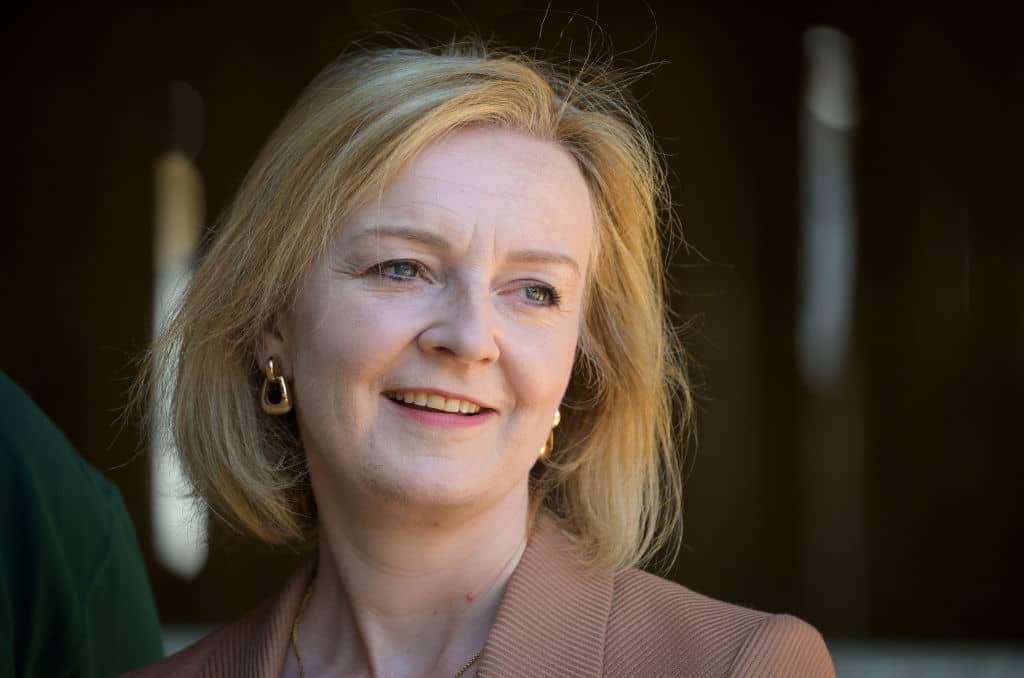Liz Truss believes the Bank of England has lost control of inflation. If chosen as the country’s next prime minister, she plans to bring it back to heel: ‘I want to change the Bank of England’s mandate to make sure in the future it matches some of the most effective central banks in the world at controlling inflation’, singling out the Bank of Japan as one model to follow.
In the rarified world of monetary policy discussion, this was a bit like chucking a live grenade into a ball pit. Michael Saunders, a member of the Monetary Policy Committee responsible for setting interest rates, noted ‘the foundations of the UK monetary policy framework, I think, are really important and best left untouched’. Adjusted for the sort of language employed by economists, this roughly translates as ‘don’t be so daft’. Governor Andrew Bailey, meanwhile, dropped a barely veiled rebuke with his observation that the independence of the Bank of England is ‘one of the great virtues of our system’. But these criticisms are targeting a suggestion that hasn’t actually been made. Truss has already stated that she ‘completely’ supports independence. What she wants to look at is the Bank’s mandate.
The mandate is effectively a central bank’s job description, setting out the target it’s supposed to meet. In the UK, this is ‘price stability’, defined as 2 per cent annual inflation. While this takes priority, there is a secondary element: supporting growth and employment. George Osborne in his time as Chancellor altered the Bank’s remit by pointing out that there were ‘flexibilities’ in the 2 per cent inflation target, essentially saying ‘please consider whether causing a recession to bring down prices is entirely sensible, and behave accordingly’. The disagreement between Truss and the Bank is mostly a matter of whether it has leaned too heavily on this flexibility.
If Truss thinks the Bank should move to a strict inflation target, then she may shed a considerable number of voters to Rishi Sunak
Many central banks have what is known as a ‘dual mandate’: they are explicitly asked to trade off the twin evils of inflation and unemployment, weighing both in their decision making. In theory, the Bank of England should put most of the weight on inflation. It was given total independence in setting interest rates by Gordon Brown precisely so that electoral concerns would play no role in their determination; all that would matter was the state of the economy. But both inflation and unemployment cause economic hardship, and always prioritising the first will sometimes make people worse off than a gentler approach to fighting inflation would have.
In fact, it would probably be one of the worst ways you could run a central bank. You can think of the price level in the economy as being roughly equal to total spending divided by total output. In a classic recession, these tend to move in the same direction: demand falls, output adjusts downwards by a little less, and you get deflation. Similarly, in a boom period demand rises, output doesn’t quite keep track, and you get inflation.
What’s happening now is a shock to supply. The war in Ukraine has driven up energy costs, driving down output; demand has remained strong. Output and inflation have moved in opposite directions. A central bank which only cared about inflation would have a simple approach to this: it would simply raise interest rates until demand was choked off, bringing inflation under control. That this would cause an incredibly deep and painful recession – worse than the one we’re set to have – wouldn’t factor into the decision.
This is where a little more clarity from Team Truss would be useful. If Truss thinks the Bank should move to a strict inflation target, then she may shed a considerable number of voters to Rishi Sunak. Confusingly, however, sources close to her campaign seem to be suggesting that what she actually wants is a lower inflation target than 2 per cent, or to follow the Japanese government in introducing a target for ‘nominal GDP’, the total value of spending in the economy.
The first of these policies would be relatively uninteresting. The Bank would be a little more hawkish in the near term, but there would be no long-term difference beyond reduced ability to lower interest rates in a recession. Nominal GDP targeting, however, would be a very interesting change.
Nominal GDP targeting is a way of formalising the tradeoff between inflation and unemployment. Right now, the Bank of England has no explicit way of weighting inflation against unemployment in interest rate decisions; it has targeting rules, rather than mechanical formulas. This introduces an element of uncertainty over whether the Bank will act to bring down supply-side inflation, or look through it to maintain employment. Under a nominal GDP target, the Bank instead tries to keep total spending in the economy on a predetermined path.
This would enable the bank to overlook the sort of supply-driven inflation we’re experiencing now, while clamping down on price increases driven by excessive demand; so long as spending remains constant, inflation is accepted. The big drawback to this policy is that it’s pretty hard to tell what GDP in a period actually is; figures are constantly revised, and mismeasurement could drive real errors in monetary policy. The other drawback for Team Truss is that it wouldn’t bring inflation down in the short term – or, indeed, in the long term; the average level would be pretty much the same. The benefit would be clearer criteria for decisions, and smoother output.







Comments